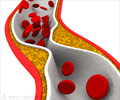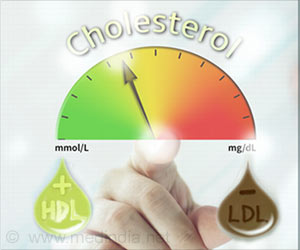A new study has found that cholesterol can affect the flow of the electrical currents that generate the heartbeat.
Not only does cholesterol block blood flow to the heart, a new study has found that it may also affect the flow of the electrical currents that generate the heartbeat.
In collaboration with researchers from Paris, France, UBC researchers David Fedida and Jodene Eldstrom found that too much cholesterol can affect the electrical currents, perhaps causing the heart to start beating out of rhythm or even stop beating.On the other hand, reducing the cholesterol normalized the structures underlying the electrical activity, thus promoting a regular and healthy heartbeat.
The researchers discovered that the key mechanism by which this happens is the Kv1.5 potassium channel, a protein that facilitates the flow of electrical charges through heart cells.
Cholesterol blocks the functioning of these proteins while lowering of cholesterol levels enhances their function.
Prior to this research, scientists already knew that cholesterol plays an important role in regulating the heart's electrical system. However, they didn't know how.
"There is recent clinical and experimental evidence that lipid-lowering therapy, such as statins, can restore normal heart rhythms, thus helping to prevent sudden death," Dr. David Fedida said.
Advertisement
"This process could be a major mechanism for the tuning of the heartbeat and might contribute to the reduction in the incidence of abnormal and fatal heart rhythms during treatment with lipid-lowering drugs," he added.
Advertisement
Presently, anti-arrhythmic drugs are non-specific and may have significant side effects.
Source-ANI
TAN














